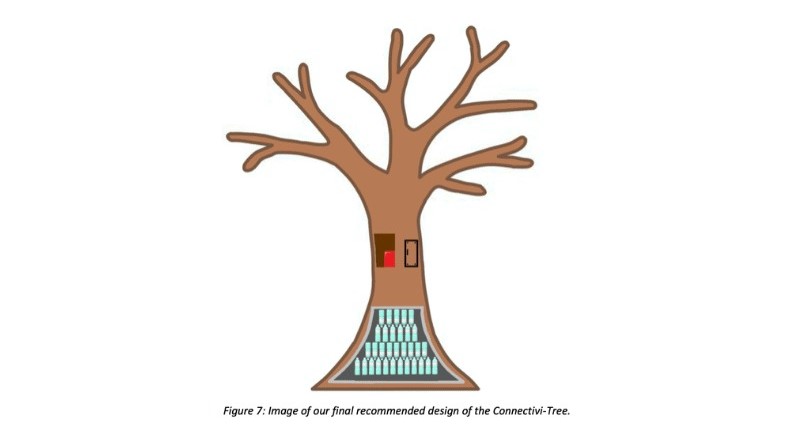
Organised by Engineers Without Borders, the 2019/20 Design Challenge focused on Makers Valley, a suburb of Johannesburg, South Africa facing housing shortages, inconsistent access to electricity and water, and problems with waste collection.
Engineers must embed an ethical approach
Beating competition from 28 university teams from across the UK and Ireland, University College Dublin took the top prize for Connectivi-Tree, which addressed the lack of internet access in Makers Valley.
According to Engineers Without Borders, the Connectivi-Tree ensures installation of a mesh WiFi network system with each router housed in a 'Connectivi-Tree', made by local artists and micro-enterprises. This ‘Tree’ would be made by the community, for the community - allowing people to take ownership of their space and regenerate the local area.
They receive a Grand Prize of a £2,000 educational bursary.
In a statement, Katie Cresswell-Maynard, CEO of Engineers Without Borders UK said: "The project speaks to the ethos of Maker's Valley by building on the existing strengths of the community of makers and artists."
A team from De Montford University secured the runner-up spot with their innovative design for a water gathering system. By harvesting rainwater for greywater use, the system would provide treatment and storage and enable tap water use to be reduced by 40 litres per day and savings of 25 per cent on bills.
Taking the Peoples’ Prize, which was voted on by the public, was Sheffield University for their project to convert a former industrial building into an apartment complex using eco-bricks made from non-recyclable plastic waste and concrete containing recycled glass. The proposed design would deliver affordable and sustainable housing for up to 30 low-income families.
Both the runner-up and the People's Prize winners will receive £500 educational bursary each to share between their teams.
Emma Crichton, Head of Engineering at Engineers Without Borders UK, said: “We had a tremendous response from this year's Design Challenge with some truly remarkable solutions and ideas that illustrated the students growing understanding of global responsibility in engineering design.
"Our judges were incredibly impressed with the student’s approach, and their attention to the social, environmental and economic considerations within Maker Valley. Some judges were so impressed they could even foresee the community taking inspiration from the ideas to make a reality."
Over 7,000 students have been involved in the 2019/20 challenge internationally with the South African and USA competitions due to have their grand finals later in the year.
Engineers Without Borders UK is part of an international movement putting global responsibility at the heart of engineering.




Project to investigate hybrid approach to titanium manufacturing
What is this a hybrid of? Superplastic forming tends to be performed slowly as otherwise the behaviour is the hot creep that typifies hot...